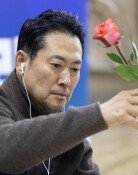[Opinion] Deterioration of NGOs
[Opinion] Deterioration of NGOs
Posted November. 13, 2007 03:03,
Both the market and the government are plagued by imperfection. So at times, non-governmental organizations (NGOs), which are positioned between the market and the government, act as a buffer against failure of both market and government. Local NGOs, which were more often referred to as civic groups, were synonymous with social conscience when the nation was ruled by dictators. According to the survey conducted by Dong-A Ilbo, however, public trust in NGOs has plummeted from 48.8 % to 21.6 % in the past decade.
This woeful result is largely attributed to many activists exploitation of NGOs as a shortcut to entering politics or as a means of making money. In the current government, some officials of civic organizations became officials in the administration and some others receive subsidies which are paid for by the taxpayers. Even some groups which take on the issues of human rights violations committed in the past in order to expand their political influence, but turn a blind eye to the ongoing human rights violations in North Korea, present themselves as civic organizations. In order for the left to seize power or to keep power, some local NGOs take the lead in launching smear campaigns against opposition candidates whenever election season comes around.
Kumi Naidoo, secretary general of the World Civic Forum (WCF), visited Seoul in preparation for the World Civic Form 2009 in Seoul. He introduced new kinds of NGOs in his speech: PONGO (Politics+NGO), established by politicians; BUNGO (Business+NGO), set up by businessmen, DONGO (Doner+NGO), set up by sponsors; BRINGO (Briefcase+NGO), set up by people who drop by here and there to get subsidies; RONGO (Royal+NGO), set up by royal families in the Middle East who have money but nothing to do with it; and MANGO (Mafia+NGO), set up by the Mafia.
Many NGO activists in Korea favor a big government, which intervenes in every sector, and a small market. They do so because the system is also favored by the left. But it is suspected that there is another reason why they value this system. Contrary to a highly competitive market that doesnt allow them to gain ground, the government and public sectors give them a place upon which they can rely if they have a proper human network.
Editorial Writer Heo Mun-myeong, angelhuh@donga.com







